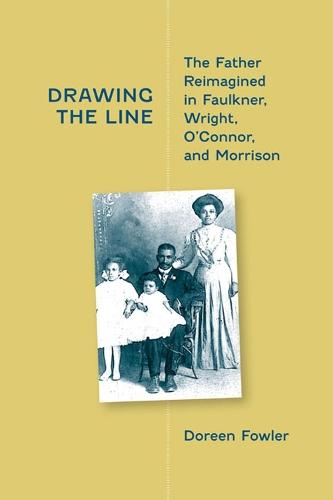Overview
In an original contribution to the psychoanalytic approach to literature, Doreen Fowler focuses on the fiction of four major American writers—William Faulkner, Richard Wright, Flannery O'Connor, and Toni Morrison—to examine the father's function as a """"border figure."""" Although the father has most commonly been interpreted as the figure who introduces opposition and exclusion to the child, Fowler finds in these literary depictions fathers who instead support the construction of a social identity by mediating between cultural oppositions. The new theoretical model that Fowler develops for the father's mediating role in initiating gender, race, and other social differences shows not only how psychoanalytic theory can be used to interpret fiction and cultural history but also how literature and history can reshape theory.
Full Product Details
Author: Doreen Fowler
Publisher: University of Virginia Press
Imprint: University of Virginia Press
Dimensions:
Width: 15.70cm
, Height: 2.20cm
, Length: 23.10cm
Weight: 0.395kg
ISBN: 9780813933993
ISBN 10: 0813933994
Pages: 192
Publication Date: 06 May 2013
Audience:
General/trade
,
General
Format: Hardback
Publisher's Status: Active
Availability: Temporarily unavailable

The supplier advises that this item is temporarily unavailable. It will be ordered for you and placed on backorder. Once it does come back in stock, we will ship it out to you.
Reviews
<p>Fowler makes a persuasive argument about the connections between these four authors and cogently explains the Southern historical legacy, infused with slavery and Jim Crow, which they share. Her revision of the father figure in psychoanalytic theory is boldly original and convincing, and it opens the way to insightful new readings of important texts. ----Jean Wyatt, author of Risking Difference: Identification, Race and Community in Contemporary Fiction
Fowler makes a persuasive argument about the connections between these four authors and cogently explains the southern historical legacy, infused with slavery and Jim Crow, that they share. Her revision of the father figure in psychoanalytic theory is boldly original and convincing, and it opens the way to insightful new readings of important texts. --</p>--Jean Wyatt, author of <i>Risking Difference: Identification, Race, and Community in Contemporary Fiction</i>
Drawing the Line provides an incisive analysis of the role of the father in both affirming and crossing borders as well as an astute approach to southern literature. This is an important and provocative study that will become a go-to book for all interested in race, gender, and psychoanalysis. Meticulously researched, well documented, and very persuasive.--Deborah Clarke, Arizona State University, author of Robbing the Mother: Women in Faulkner
Drawing the Line provides an incisive analysis of the role of the father in both affirming and crossing borders as well as an astute approach to southern literature. This is an important and provocative study that will become a go-to book for all interested in race, gender, and psychoanalysis. Meticulously researched, well documented, and very persuasive. --Deborah Clarke, Arizona State University, author of Robbing the Mother: Women in Faulkner Fowler makes a persuasive argument about the connections between these four authors and cogently explains the southern historical legacy, infused with slavery and Jim Crow, that they share. Her revision of the father figure in psychoanalytic theory is boldly original and convincing, and it opens the way to insightful new readings of important texts. -- --Jean Wyatt, author of Risking Difference: Identification, Race, and Community in Contemporary Fiction Fowler's arguments... are not only convincing but surprisingly fresh, as if one were seeing a familiar text for the first time. --Flannery O'Connor Review
Drawing the Line provides an incisive analysis of the role of the father in both affirming and crossing borders as well as an astute approach to southern literature. This is an important and provocative study that will become a go-to book for all interested in race, gender, and psychoanalysis. Meticulously researched, well documented, and very persuasive. --Deborah Clarke, Arizona State University, author of Robbing the Mother: Women in Faulkner Fowler makes a persuasive argument about the connections between these four authors and cogently explains the southern historical legacy, infused with slavery and Jim Crow, that they share. Her revision of the father figure in psychoanalytic theory is boldly original and convincing, and it opens the way to insightful new readings of important texts.-- --Jean Wyatt, author of Risking Difference: Identification, Race, and Community in Contemporary Fiction Fowler's arguments... are not only convincing but surprisingly fresh, as if one were seeing a familiar text for the first time. --author of Flannery O'Connor Review
Author Information
Doreen Fowler, Professor of English at the University of Kansas, USA is the author of Faulkner: The Return of the Repressed (Virginia).




